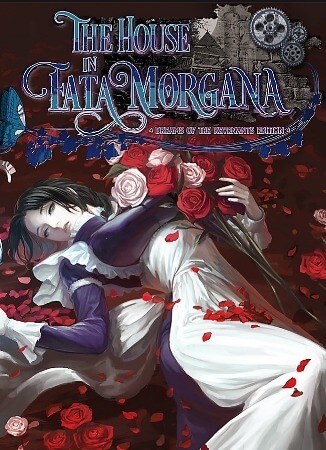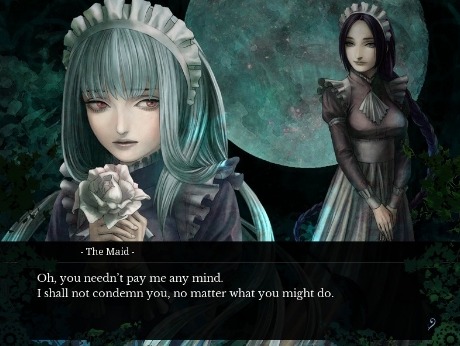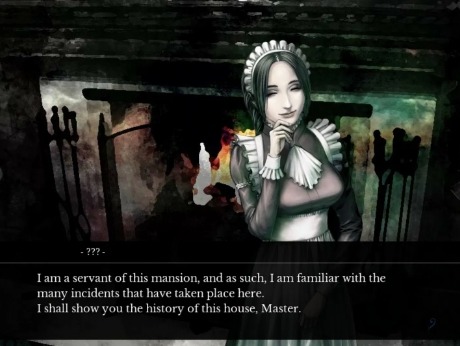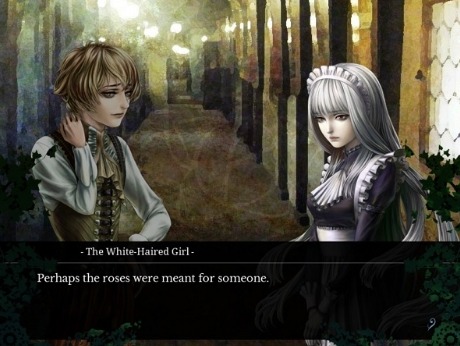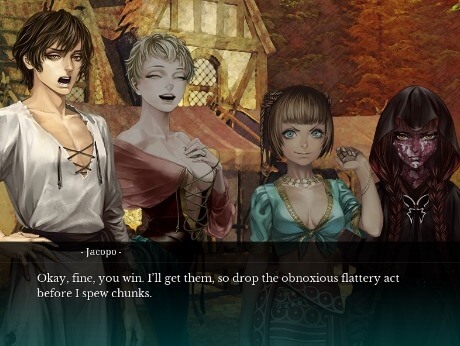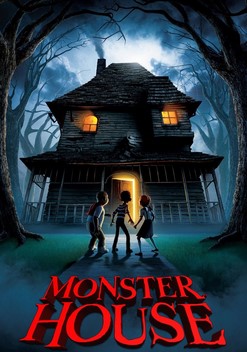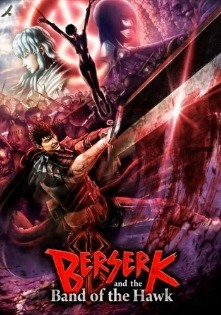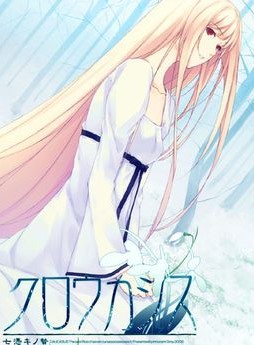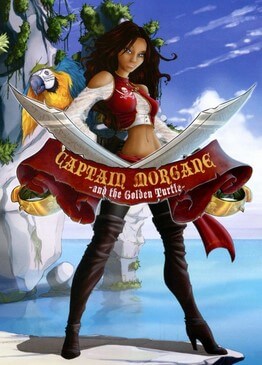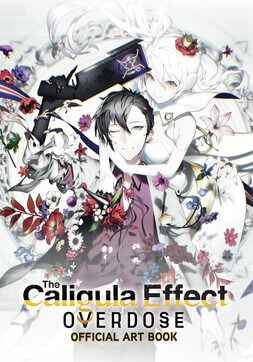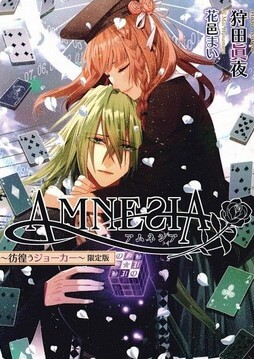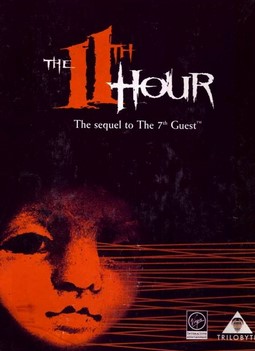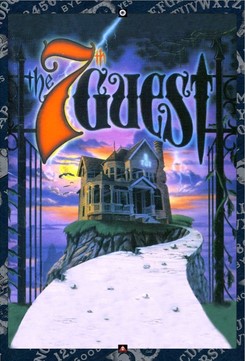The Maid next takes the spirit to 1707, where the mansion has become abandoned and destitute, though it is now in a different location than in 1603. The Maid, the mansion's only inhabitant, one day discovers Yukimasa, an amnesiac man, in the cellar. However, due to his amnesia as well as abuse he received due to his race and inability to communicate, he came to visualize himself as a savage beast, calling himself "Bestia". While the Maid initially tries to civilize him, he murders the multiple villagers that come to the mansion in retaliation for his abuse. Some time later, the White-Haired Girl appears at his doorstep; while she is a reincarnation of her previous self from 1603, she retains hazy memories of her past life. Yukimasa attempts to kill her, but her lack of fear (which he believes is fueled by her blindness) stupefies him, and the two become friends. Meanwhile, Yukimasa's lover Pauline is searching for him, as she was told he was lost at sea. She gradually befriends Javi, a standoffish young boy whose parents were killed by Yukimasa. The two travel to the mansion, where Pauline finds Yukimasa. Yukimasa flees from Pauline, whom he sees as another Bestia. Pauline chases him into the manor, and in his confusion he kills her. Some time after, Javi rallies the villagers to attack the mansion, resulting in the White-Haired Girl's death. Yukimasa finally succumbs to being nothing more than a beast, slaughtering all of the villagers.
The spirit is then lead by the Maid to 1869. In this time the house is owned by young, greedy businessman Jacopo, and the house has moved to America. He lives with his new wife, the White-Haired Girl, as well as a multitude of servants, including the Maid and his childhood friend Maria. Jacopo, believing his wife to be wooing other men, locks her in a small exterior cottage. The White-Haired Girl frequently writes love letters to Jacopo; however, Maria secretly wishes to destroy the two's relationship, so she alters the recipient names on the letters to address them to other men. Jacopo decides to release his wife, but when he comes to her cottage he finds that she had given up hope and fled. Finally realizing the truth, Jacopo confronts Maria, who reveals her hatred towards him and wounds him, but Jacopo kills Maria. Jacopo spends the rest of his life unsuccessfully searching for the White-Haired Girl.
Briefly separated from the Maid, the spirit encounters a talking painting which shows him a memory of an unknown black-haired woman. Shortly after, the spirit is found by the Maid, who takes it to 1099. In this era the White-Haired Girl flees to the mansion from a village that persecuted her for her appearance. She meets Michel, a mysterious hermit who has the power to drain the life from anything he touches. The two fall in love, with the White-Haired Girl revealing her name as Giselle. A bandit attacks the mansion, forcing Michel to drain some of his life. The man escapes, but before he dies he tells the village of Michel and Giselle. Having been cut, some of Michel's blood spills onto Giselle, which appears to cause her health to deteriorate. The villagers attack the manor, forcing the two to flee into the observation tower. Believing they have no chance of escape, the two embrace, causing Giselle to fall limp. Michel confronts the villagers and they skewer him, but his blood dripping from his corpse down the stairs kills all of the villagers. Giselle awakens, Michel's curse having not affected her after all. As she grieves for Michel, she is approached by the Maid, who reveals herself to be a witch named Morgana. Morgana offers her the option to be reincarnated so that she may one day reunite with Michel's reincarnation, which Giselle accepts.
The spirit finally recalls its past identity as Michel, who demands to see the truth, believing what he witnessed to be falsified. In reality, Giselle was not the White-Haired Girl; instead, she was a young black-haired woman in need of money for her family. She accepted work at the wealthy Bollinger estate but was repeatedly raped by the Bollinger patriarch, Antonin, scarring her physically and emotionally. When Antonin's wife discovered this, Giselle was to be executed, but instead Antonin had her banished to the mansion where Michel, their son, lived. When Giselle enters Michel's room one night, he discovers her and accuses her of being a thief; Giselle flees in terror and passes out in the woods. She is brought to a nearby village where the villagers claim Giselle had stolen money and torture her until she reveals where it is. Out of desperation, Giselle leads the villagers to the mansion so that they may loot it. Michel steps outside, revealing his pale skin, white hair and red eyes. He scares the villagers away and accuses Giselle once more of being a thief. Giselle, fed up with nobody believing her, begs Michel to kill her, baffling him. She reveals that Michel's father had raped her, causing Michel to feel guilty for his accusations and for his father's actions, and the two begin their relationship anew. Over the course of a year, the two become incredibly close, eventually coming to realize that they love one another. Michel receives news that his father has died; after sending a letter to his mother, knights arrive and attack the manor. The two flee to the observation tower, but Michel leaves Giselle trapped in the top room while he confronts and is killed by the knights, his corpse being dragged away.
